Introduction
Afghan President Hamid Karzai and Pakistani President Asif Ali Zardari were in London on 03 February 2013 for a trilateral summit meeting with the British Prime Minister David Cameron. The current talks in London were the third in the series with the first two having been held in 2012. The inaugural meeting was in Kabul in July, which was then followed by a meeting at the sidelines of the UN General Assembly in September. In the London talks, the Pakistani and Afghan army and intelligence chiefs took part for the first time. It was reported that the Afghan and Pakistani military and intelligence officials also met informally on 03 February ahead of the summit.1
The Afghan peace process, primed by the release of Taliban detainees by Pakistan, had not been progressing as hoped by all stakeholders. On the other hand, Pakistan in return for the Taliban detainees it had released, expected further cooperation from Afghanistan including a role in training of Afghan National Security Forces (ANSF). Some analyst also felt UK was best placed to resolve the issue of the Durand Line which has never been officially recognized by Kabul, and has been a major cause of tension between the two countries. 2
Issues
Leading up to the London trilateral, there were two events of significance after the Paris peace talks in December 2012. First was the visit by Karzai to Washington where he and President Obama announced on 11January that a negotiating office for the Taliban would be opened in Qatar. However Karzai, on return to Kabul, said there will be no deal until Qatar meets his earlier stated conditions in writing. Second was the core group meeting in Dubai where the Pakistan‘s foreign secretary had said that Pakistan plans to release all Afghan Taliban prisoners still in its custody.
The Afghan President in his imitable manner set the tone for the trilateral meet with an interview to the Guardian and ITV released late on 03 February. He suggested that Pakistan was preventing the Taliban from entering into peace talks with his government. Karzai also said that the biggest threat to peace in Afghanistan was not the Taliban, but meddling from foreign powers. He took a swipe at the British when he remarked that Helmand situation and security was better before British troops were deployed there in 2006.Hinting at the Taliban safe havens in Pakistan he added that the drawdown of Western troops appeared to have been because they had realised that “they were fighting in the wrong place.”
Taliban for Talks
The US has tried to accelerate the peace process by working with Britain, Norway and Germany to reach out to the Taliban. 3 All these efforts were to work around the Taliban demands for changing the Afghan constitution, withdrawal of all foreign troops from Afghanistan and the most uncomfortable of their entire refusal to recognize the Afghan government while being more amenable to negotiating directly with US.
Taliban Office
The heart of the disagreement regarding opening of Taliban office in Doha is Karzai's demand that Qatar produce a written memorandum of understanding agreeing to his preconditions. These demands include assurances that the office would not be used for any “political purpose” other than direct negotiations with Afghanistan, that it have a fixed time frame and be closed if talks do not take place, and that all Taliban negotiators provide “documentation” proving they are legitimate representatives.4 Qatar has not agreed on the demands of Karzai Administration that the office should be closed down within six months if Taliban do not start direct talks with HPC.
Release of Detainees
Pakistan’s lack of monitoring the whereabouts and activities of Taliban prisoners it released in recent months as frustrated Afghanistan. Pakistan says doesn't have the resources to keep track of the freed detainees. The HPC had handed Pakistan the list of prisoners, including Turabi, that it wanted freed. They have also asked for the release of the Taliban’s former second in command, Mullah Abdul Ghani Baradar, but Washington has urged Pakistan not to release him.5 There are indications that at least more than half might have rejoined the ranks of the insurgency.6 In some cases, the released Taliban resorted to suicide attacks. Further Pakistan had released more detainees than Afghanistan had asked for. There has been at least one report of tension between Taliban leadership as a released Taliban leader asked to be reinstated to his former post. The US Embassy in Kabul has called for “responsible release” of Taliban prisoners and that it was up to Afghanistan and Pakistan to reach to a solution.7
US Interests
Top on the US agenda is jump-starting the peace and reconciliation process which is not in-step with its drawdown plans and its exit strategy. Without a meaningful outcome of the political planned in Afghanistan, the US fears will again be accused of abandoning the region, just as it was at the end of the Soviet Union's Afghan occupation in the early 1990s. Worse, if a civil war breaks out, it may do an ‘Iraq’ in South Asia. In addition, U.S. hopes of positioning a post-withdrawal counterterrorism force in Afghanistan while in the near term negotiations are critical to secure the release of Sgt. Bowe Bergdahl, the only U.S. service member known to be a Taliban captive.
Pakistani Demands
Pakistanis want a secure Afghan border, an end to the Balochistan insurgency, coordinated action against anti-Pakistan guerrillas in both countries and reduction of Indian role in Afghanistan. According BBC News, Pakistan does not want a repeat of the 1989 pullout by Soviet forces, which left Kabul in the hands of what it regarded as "unfriendly" forces. It fears this may extend Indian influence to its western border.
Trilateral Summit
Following talks the joint statement issued from Downing Street said, "All sides agreed on the urgency of this work and committed themselves to take all necessary measures to achieve the goal of a peace settlement over the next six months." They urged the Taliban to join the reconciliation process in Afghanistan. Cameron said both Karzai and Zardari had agreed at the summit to initiate 'an unprecedented level of co-operation' between their nations and they hoped to sign an agreement strengthening ties on economic and security issues, including trade and border management, later in the year. He added that discussions at the summit had focused on ways of advancing the Afghan-led peace process as well as strengthening relations between Pakistan and Afghanistan.8
Outcome
All sides affirmed support for the opening of a Taliban office in Doha for the purpose of negotiations with the HPC. They called on the Taliban to take steps necessary to open an office and to enter into dialogue. However there were reports that Pakistan viewed the Afghan conditions as detrimental to further progress on the peace talks.9 Another significant commitment was to “strengthen co-ordination of Taliban detainee releases from Pakistani custody.” In future Islamabad will send the list of the Taliban inmates to the HPC that would be released from Pakistani prisons. It had been speculated that the Afghan Government will indirectly recognize the Durand Line in a pact “titled Border Management and Strategic Agreement”, and in turn Pakistan shall push the Taliban for peace. As per Afghan media when the US pressurized Pakistan for supporting insurgents, General Kayani justified Pakistani action in a 100-page report claiming that NATO, India and Afghanistan wanted to divide Pakistan.10 The Afghan presidential spokesman, on 10 Feb clarified that the issue of the Durand Line had not been discussed at the trilateral.11
Transitional Government
It has also been reported that the Pakistan’s delegation during the London talks demanded that negotiations be carried out between Afghan political groups and Taliban to establish a new legitimate administration in Kabul. It is said that Pakistani delegation had told President Karzai that they were not able to get the Taliban to accept the Afghan Constitution and the Afghan Government, therefore, there is a need to establish a ‘new political system’.12 According to sources, Pakistan held a meeting between warlords, Hezb-e-Islami and the Taliban commanders in the Shamshatoo Refugee Camp in Pakistan where the establishment of a transitional Government in Afghanistan was discussed.13
An Afghan Taliban spokesman on Wednesday dismissed the outcome of a conference in London and said that the conference and other “horse trading” were “the real obstacles of effective and fruitful negotiations between the factual sides”.14 The US on its part said that it supports the Pak-Afghan deadline for finalising a peace deal with the Taliban and urges insurgents to open a reconciliation post in Qatar. Such a process was “the surest way to end the violence and ensure lasting stability in Afghanistan and in the region”. “Our goal here has been to support the creation of a process to make it possible … for willing Taliban participants to talk directly to the Afghan High Peace Council”.15
The trilateral was followed by two visits. First was a two-day visit by the British Defense Secretary Philip Hammond to southern Afghanistan to visit U.K. troops on 05 Feb 13. He also met with new Afghan Defense Minister Bismillah Mohammadi in Kabul. 16 The second visit was by Pakistani Prime Minister Ashraf to meet David Cameron on February 12, 2013. During the meeting, the two leaders discussed matters of bilateral interest including the aftermath in Afghanistan following the withdrawal of NATO troops. Prime Minister Ashraf also put in a bid for military hardware for Pakistan. The meeting also covered Indo-Pakistan relations apart from discussions on matters of bilateral and international importance. Cameron, hailing the recently concluded trilateral meeting, said that Pakistan’s role was constructive and he would be visiting Pakistan this summer to carry the process forward.17
Assessment
The trilateral summit meets are organised taking in consideration certain ground realities. For one it is not possible to discuss Afghanistan with India and Pakistan in the same forum. Therefore, US conducts a trilateral involving India while the UK manages one with Pakistan. Second, UK has been more active in dealing with the Taliban representatives and involving them in the power sharing mechanism in Kabul( since the Saudi organised peace talks in 2009) and the same time it mitigates the turbulent relationship Pakistan shares with US particularly for the political constituency in Pakistan. The present meet involved the military and intelligence chiefs giving due recognition to the various power centres in Pakistan, and possibly signaling a more direct and on the table approach to speed up the process.
Although the Taliban appear more ready to talk than ever before, peace talks remain tenuous on account of a rising number of interlocutors on either side — all trying to get some kind of negotiations started with various combinations of stakeholders. Reportedly, members of the Taliban are in contact with representatives from 30 to 40 different countries. Recent informal talks in Doha had the intervention of a Pakistani politician Mullah Fazlur Rahman and Yusuf al-Qaradawi who has contacts with the Muslim Brotherhood in Egypt. The timeline of six months set by the trilateral summit, deemed overly optimistic by most experts, is most probably derived from the imperative to get the Taliban to participate in the upcoming provincial and Presidential elections in Afghanistan and the filing of nominations for the same. There is also this need to settle the border issue and Pakistani requirements at the earliest to get on with the peace process in right earnest.
Second, the idea of the transitional government being introduced into the peace process aims at finding a way around the Taliban’s refusal to deal directly with the Karzai government. The idea of transitional government also puts pressure on the Afghan government to dilute its demands concerning the Taliban office in Qatar.
Another issue of note is the Pakistani demand of weapons from UK. The armaments in question would most likely be those being moved out of Afghanistan by the British troops as a part of their drawdown. Pakistan has made a similar demand to the US coinciding with the move of the first lot of containers from Afghanistan through Pakistan. Third is the Pakistani desperation to get the SPA through comes from the fact that NATO/ISAF countries are basing their training mission in Afghanistan post- 2014 on their respective SPAs signed with Afghanistan. India, unlike Pakistan, having signed an SPA with Afghanistan is better placed to ramp up its training role post- 2014. India has viewed with unease the British efforts to push through the SPA between Afghanistan and Pakistan.
It is widely believed that British interlocutors had a leading role in the drafting of the five-point peace process roadmap for Afghanistan which mainly addresses Pakistan and Taliban interests in the region. There is a sense that the elements of the erstwhile Northern Alliance, more favourable aligned to India, are being sidelined in the peace process. India is also uncomfortable with the distinction US has made between Al-Qaeda and other militant groups operating in the region for pushing through the peace process. Taliban, TTP, IMU etc may not pose any threat to the US but they definitely have security implications for India.
Indian apprehensions also stem from the fact that it believes the entire peace process is Pakistan-centric and does not address the regional concerns. To that end India is contemplating talks with Russia and China to give the peace process a more regional outlook. India is also of the opinion that due consideration must be given to the interests of countries which are investing, particularly in the infrastructure sector, in Afghanistan. India feels that British intervention through a hastily-cobbled deal between Afghanistan and Pakistan including bringing the Taliban into the power structure in Kabul, aims to give the NATO and the US an honourable exit from Afghanistan.
Conclusion
When viewed favourably it can be said that the London trilateral represented a convergence of three of the most important players in Afghanistan on the urgency of resolving issues and making efforts towards peace through a political settlement. The big question however remains whether Karzai has accepted the need to have a Taliban office in Doha sans conditions and in turn his demand to be the sole Afghan interlocutor with the Taliban has been accepted by the other concerned parties.
Endnotes
- Michael Lipin. ‘Britain's Cameron Hosts 3rd Summit With Afghan, Pakistani Leaders’, February03, 2013. http://www.globalsecurity.org/military/library/news/2013/02/mil-130203-voa02.htm?_m=3n%2e002a%2e722%2efc0ao03vlj%2ennt
- Trilateral Summit in London, Outlook Afghanistan, February 03, 2013. http://outlookafghanistan.net/editorialdetail.php?post_id=6545
- Taliban hint at sharing power, yet Afghan peace effort fraught with mistrust, confusion, Washington Post, February 04, 2013. http://www.washingtonpost.com/world/asia_pacific/taliban-hint-at-sharing-power-yet-afghan-peace-effort-fraught-with-mistrust-confusion/2013/02/03/ea40fcfc-6e5b-11e2-b35a-0ee56f0518d2_story.html
- Mariya Karimjee. ‘UK PM Cameron to host peace talks between Afghanistan and Pakistan‘,Globalpost, February 03, 2013
http://www.globalpost.com/dispatch/news/regions/asia-pacific/afghanistan/130203/uk-pm-cameron-host-peace-talks-between-afghani - Taliban hint at sharing power, yet Afghan peace effort fraught with mistrust, confusion, February 4 http://www.washingtonpost.com/world/asia_pacific/taliban-hint-at-sharing-power-yet-afghan-peace-effort-fraught-with-mistrust-confusion/2013/02/03/ea40fcfc-6e5b-11e2-b35a-0ee56f0518d2_story.html
- ‘Freed Taliban fighters return to insurgency, frustrating peace efforts in Afghanistan,, Fox News, February 21, 2013. http://www.foxnews.com/world/2013/02/21/freed-taliban-fighters-return-to-insurgency-frustrating-peace-efforts-in/
- Tolo TV Headlines, February 10, 2013.
- Pak, Afghan Leaders To Seek Peace Settlement Within Six Months, February 05,2013. http://www.finanznachrichten.de/nachrichten-2013-02/25886260-pak-afghan-leaders-to-seek-peace-settlement-within-six-months-020.htm
- Kamran Yousaf, ‘The Qatar initiative: JUI-F chief features in Doha talks’, The Express Tribune, February 11, 2013. http://tribune.com.pk/story/505597/the-qatar-initiative-jui-f-chief-features-in-doha-talks/
- Cheragh Daily, February 11, 2013.
- Pajhwok Afghan News, February 11, 2013.
- Hasht-e-Subh Daily, February 10, 13
- Sarnavesht Daily, February 10, 2013.
- Taliban dismiss outcome of Pak-Afghan-UK conference, Dawn, February 06,2013.
http://dawn.com/2013/02/06/taliban-dismiss-outcome-of-pak-afghan-uk-conference/ - US supports Pak-Afghan deadline for Taliban deal, Dawn, February 06, 2013
http://dawn.com/2013/02/06/us-supports-pak-afghan-deadline-for-taliban-deal/ - UK Defense Secretary Visits Afghanistan, ABC News, February 7, 2013.
http://abcnews.go.com/International/wireStory/uk-defense-secretary-visits-afghanistan-18431420 - Pakistan seeks military hardware from Britain, The Nation, February 13, 2013 http://www.nation.com.pk/pakistan-news-newspaper-daily-english-online/national/13-February-2013/pakistan-seeks-military-hardware-from-britain
Published Date: 2nd March 2013


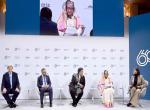
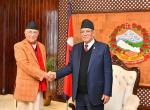
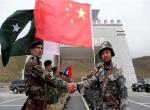

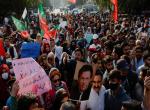
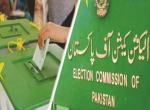
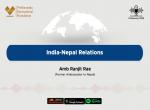
Post new comment